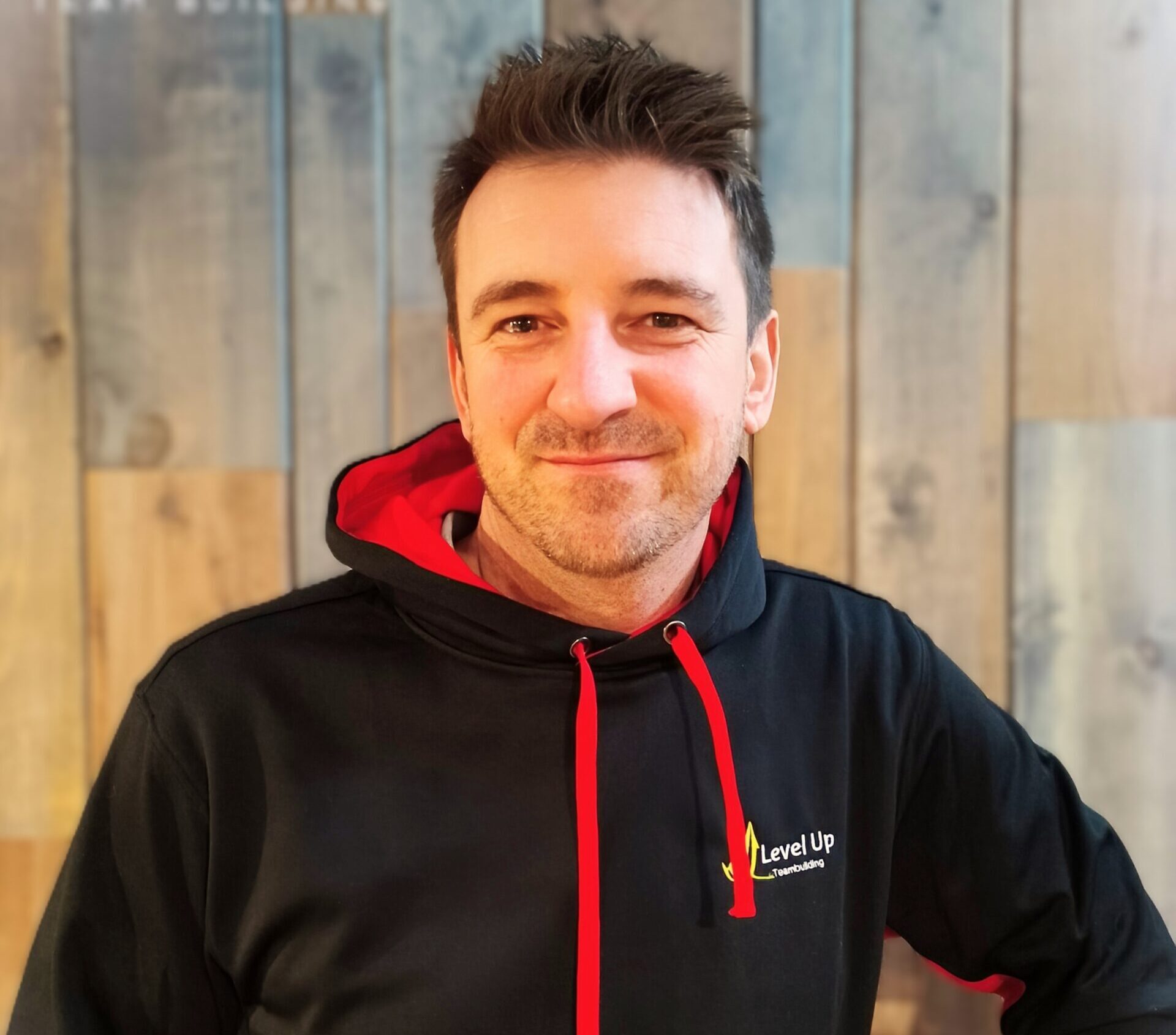Meet David, the powerhouse behind Level Up Teambuilding and one of the driving forces behind the high-energy experiences we offer to teams in Fredericton and beyond. With a passion for building – whether it’s physical structures or strong teams – David’s journey to becoming a team trainer and facilitator is as unique as the team-building events he leads.
From Austria with Passion
Born and raised in a small village in Austria, David’s childhood was all about building and creating. What started with Lego and RC planes evolved into constructing treehouses and even small dams by the creek near his house. By the age of 15, David began his apprenticeship in construction, where he learned the value of creativity and hands-on problem solving. In Austria, each building is unique – brick houses, straw bale homes, clay structures – making the world of construction a fascinating, ever-changing landscape for David.
At 18, David joined the mandatory military, which taught him discipline and gave him intense, sometimes uncomfortable experiences that pushed him out of his comfort zone. Despite the challenges, David soon found himself leading teams at construction sites, taking on responsibilities well beyond his years. His approach? Step out of the comfort zone, face the challenges head-on, and become the best. It was this mindset that led David to become one of the top professionals in his trade.
A Passion for Team Building
After 15 years of non-stop work, David’s life took an unexpected but exciting turn. He met a team trainer who introduced him to the world of high-rope gardens and firewalking during a 10-day team-building event. The experience captivated him so deeply that he knew he had to become a trainer himself. Soon after, David transitioned from construction to becoming a certified High-Rope Garden Safety Manager and Team Trainer, blending his passion for building with his newfound love for team development.
His career took him to work with top sports teams in Austria and Turkey, where he had the chance to train elite athletes in soccer – Europe’s most beloved sport. But as much as he enjoyed his work, David’s path took another exciting turn when he met Martina during one of these events. The connection was instant, and little did he know at the time, she would become the mother of his three beautiful children.
A New Chapter: From Europe to Asia to Canada
After years of running successful team-building events in Austria, David and Martina set their sights on expanding their horizons. They moved to Kuala Lumpur, Malaysia, where they experienced a new culture, a new way of life, and learned invaluable lessons about business and luxury. It was a time of growth and reflection – one that eventually led them to the realization that their future wasn’t in Malaysia, but in Canada.
After falling in love with New Brunswick and the potential it offered for building and renovating properties, they made Fredericton their home. Here, they began a new chapter – one where their constant willingness to step out of their comfort zones would become a powerful force for positive change in the world of corporate team-building.
A Message for Teams in the Maritimes
David and Martina’s journey proves that extraordinary things are possible when you push past your limits and embrace change. It’s this spirit of growth and transformation that they bring to every team-building event they lead. Whether you’re a corporate team, an elite sports team, or a group looking to bond and grow together, David’s diverse background – spanning construction, high-performance sports, and team training – offers a wealth of knowledge and experience to help your team succeed.
The best part? If David and Martina can do it, so can you! Their hands-on approach, combined with practical tips and insights, will help your team build stronger bonds, communicate better, and achieve new heights. Because in their world, the sky really is the limit.
Ready to level up your team? Let’s make it happen!





